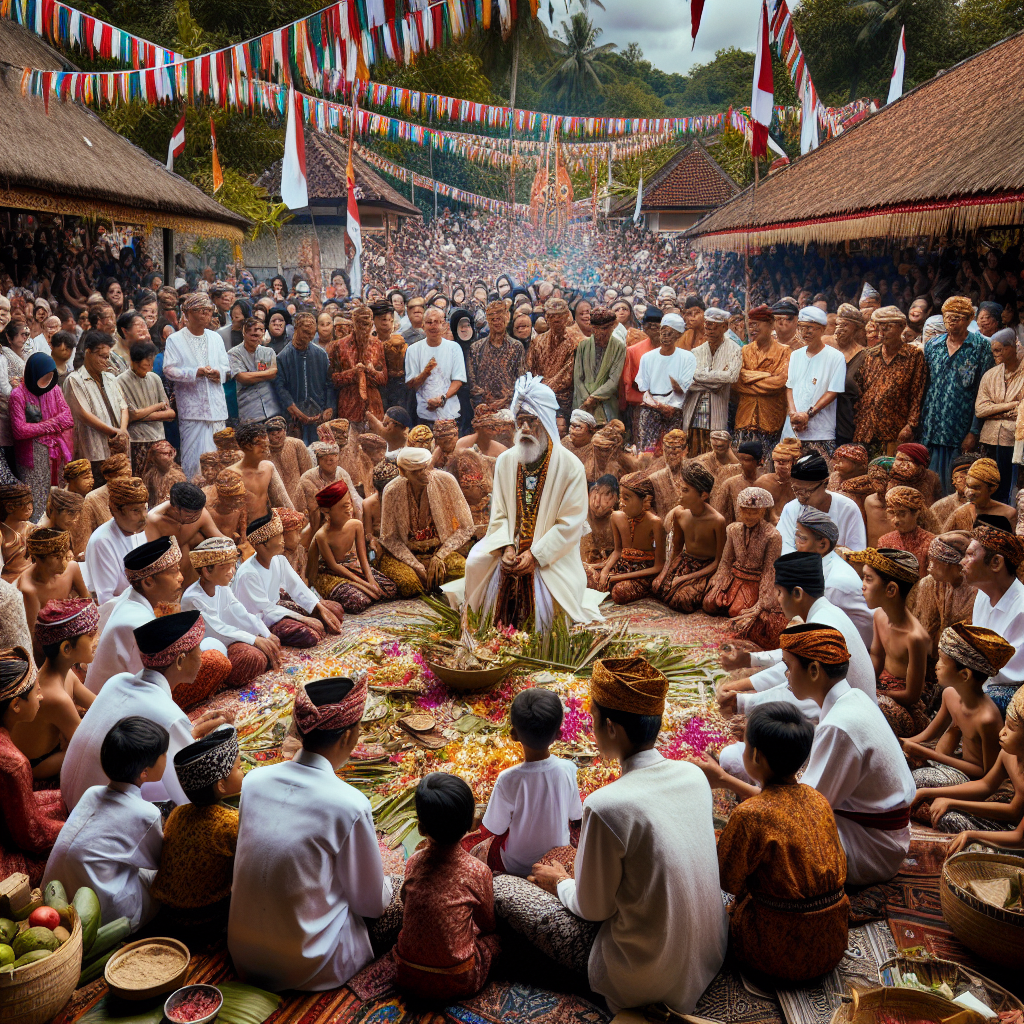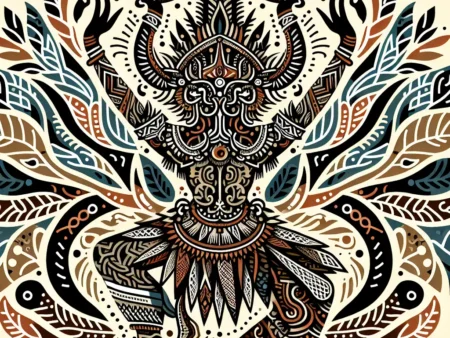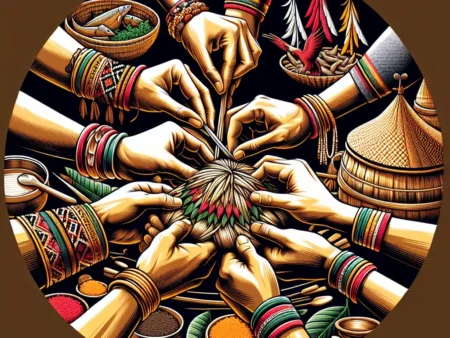Tradisi Ruwatan di Jawa adalah praktik spiritual yang dilakukan untuk membersihkan diri dari energi negatif dan mendapatkan perlindungan.
Sejarah dan Makna Tradisi Ruwatan di Jawa
-
Table of Contents
- Introduction
- The Origins of Ruwatan
- The Influence of Islam
- The Rituals and Symbolism of Ruwatan
- 1. Offering and Prayers
- 2. Cleansing with Water
- 3. Incense and Smoke
- 4. Symbolic Objects
- The Significance of Ruwatan in Javanese Culture
- 1. Spiritual Healing and Protection
- 2. Community Bonding
- 3. Cultural Preservation
- 4. Psychological Well-being
- Conclusion
Introduction

Indonesia is a country rich in cultural traditions and customs, and one of the most fascinating traditions is the practice of “ruwatan” in Javanese culture. Ruwatan is a traditional ceremony that has been passed down through generations in Java, and it holds deep historical and cultural significance. In this article, we will explore the history and meaning of the ruwatan tradition in Java, shedding light on its importance in the lives of the Javanese people.
The Origins of Ruwatan
Ruwatan has its roots in ancient Javanese beliefs and practices. The word “ruwatan” itself is derived from the Javanese word “ruwat,” which means to cleanse or purify. The ceremony is performed to cleanse and purify individuals, objects, or places from negative energies, illnesses, or misfortunes. It is believed that ruwatan can restore balance and harmony in one’s life.
The origins of ruwatan can be traced back to the pre-Islamic era in Java when the Javanese people practiced animism and Hindu-Buddhist beliefs. During this time, ruwatan was performed as a form of spiritual healing and protection. It was believed that by conducting the ceremony, one could appease the spirits and seek their blessings.
The Influence of Islam
With the arrival of Islam in Java, ruwatan underwent some changes to incorporate Islamic elements. Islam became the dominant religion in Java, but instead of eradicating the existing traditions, it blended with them, creating a unique syncretic culture. Ruwatan, too, adapted to the Islamic influence and incorporated Islamic prayers and rituals into the ceremony.
Today, ruwatan is practiced by both Muslims and non-Muslims in Java. It has become an integral part of Javanese culture, transcending religious boundaries. The ceremony is performed for various occasions, such as childbirth, marriage, housewarming, or to ward off misfortunes.
The Rituals and Symbolism of Ruwatan
Ruwatan is a complex ceremony that involves several rituals and symbolic acts. The rituals may vary depending on the purpose of the ruwatan, but they generally follow a similar pattern. Let’s explore some of the common rituals and their meanings:
1. Offering and Prayers
The ceremony begins with offerings and prayers. The offerings, known as “sesajen,” consist of various items such as flowers, fruits, rice, and traditional Javanese snacks. These offerings are placed on a special tray and presented to the spirits or deities. Prayers are recited to seek blessings and protection.
2. Cleansing with Water
Water plays a significant role in ruwatan. It is believed to have purifying properties and is used to cleanse the individuals or objects involved in the ceremony. The person performing the ruwatan may sprinkle water on the participants or use it to wash specific objects. This act symbolizes the removal of impurities and negative energies.
3. Incense and Smoke
Incense and smoke are commonly used in ruwatan ceremonies. The burning of incense is believed to ward off evil spirits and purify the surroundings. The smoke is considered a medium to connect with the spiritual realm and seek divine intervention.
4. Symbolic Objects
Various symbolic objects are used in ruwatan to represent different aspects of life. For example, a broom may be used to sweep away negative energies, while a mirror symbolizes self-reflection and introspection. These objects serve as tools to facilitate the cleansing and purification process.
The Significance of Ruwatan in Javanese Culture
Ruwatan holds immense significance in Javanese culture and is deeply ingrained in the lives of the Javanese people. It serves multiple purposes and fulfills various needs within the community. Here are some key aspects that highlight the significance of ruwatan:
1. Spiritual Healing and Protection
Ruwatan is primarily performed for spiritual healing and protection. It is believed to cleanse individuals or objects from negative energies, illnesses, or misfortunes. The ceremony provides a sense of comfort and reassurance, knowing that one is protected and blessed by the spirits or deities.
2. Community Bonding
Ruwatan is often performed within the community, involving family members, friends, and neighbors. The ceremony brings people together, fostering a sense of unity and solidarity. It strengthens social bonds and promotes a collective spirit among the participants.
3. Cultural Preservation
By practicing ruwatan, the Javanese people preserve their cultural heritage and traditions. The ceremony has been passed down through generations, and its continuation ensures that the customs and beliefs of the Javanese culture are not forgotten. Ruwatan serves as a reminder of the rich history and traditions of Java.
4. Psychological Well-being
Ruwatan also has psychological benefits for the participants. The act of cleansing and purifying can have a calming effect on the mind, relieving stress and anxiety. It provides a sense of hope and optimism, allowing individuals to start afresh and overcome challenges.
Conclusion
Ruwatan is a fascinating tradition that reflects the deep-rooted beliefs and customs of the Javanese people. Its historical origins and cultural significance make it an integral part of Javanese culture. The ceremony’s rituals and symbolism provide a unique insight into the spiritual and social aspects of the Javanese community. Ruwatan serves as a reminder of the importance of traditions in preserving cultural identity and promoting well-being. Whether performed for spiritual healing, community bonding, or cultural preservation, ruwatan continues to play a vital role in the lives of the Javanese people.







